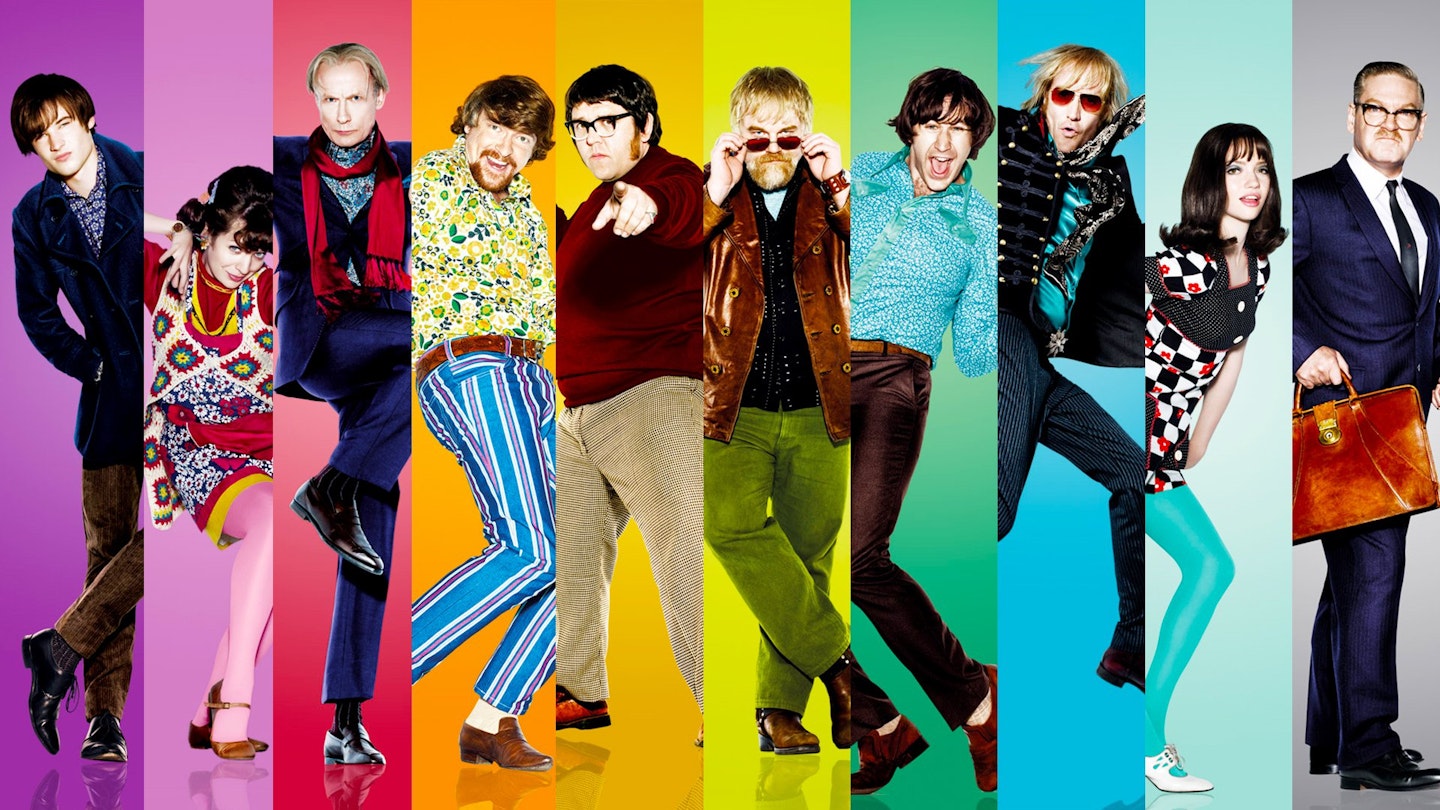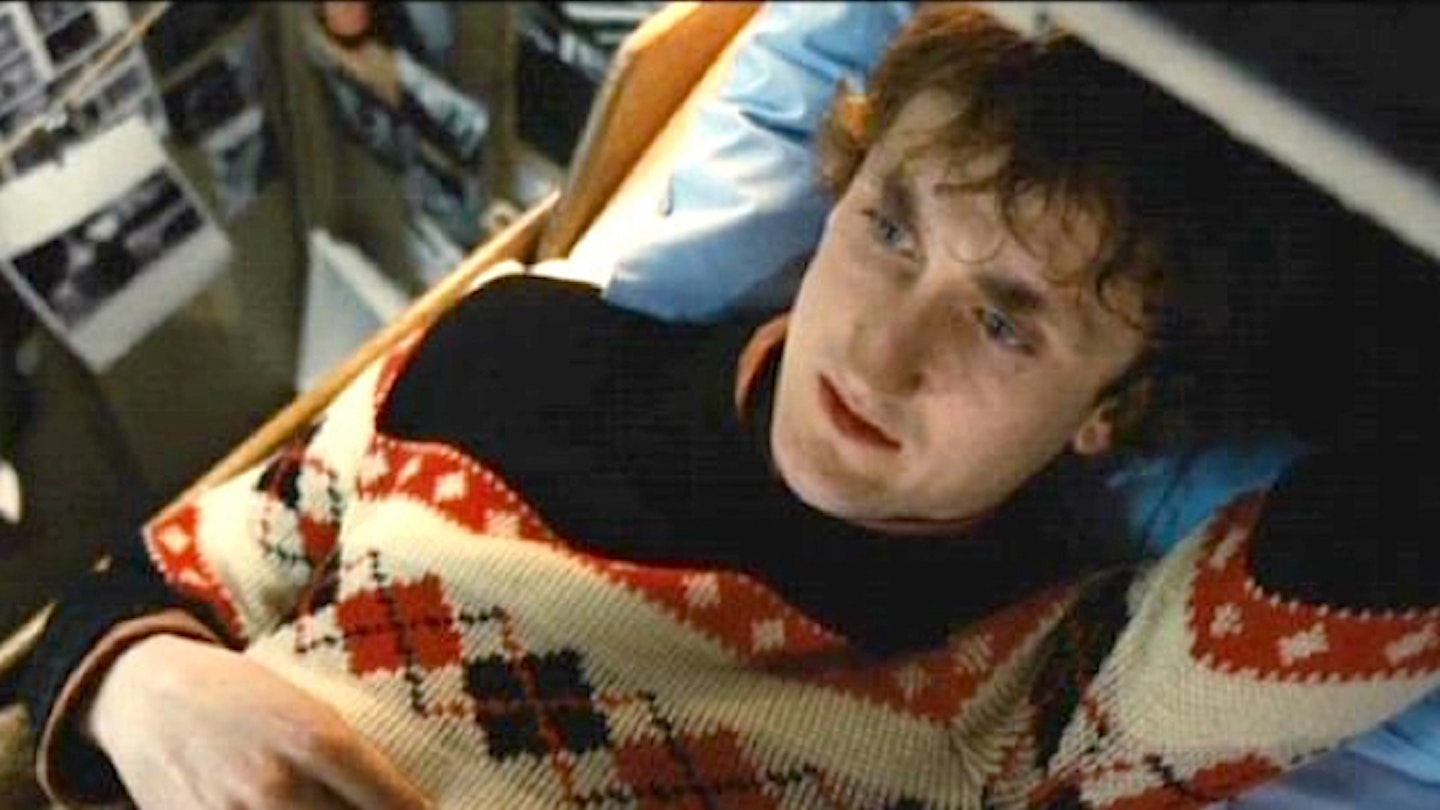As he is prone to remind interviewers, writer-director Richard Curtis’ true passion is not the dithering trials of being a middle-class English twit in the throes of misbegotten love (as his post-Blackadder career might suggest), but pop music. Specifically, that dreamscape of ’60s tunes broadcast from illicit vessels crewed by louche DJs living the unfettered dream, albeit fed on tinned sardines and only granted a shag every other Saturday. It doesn’t take a rock historian to detect a thinly veiled take on the legendary Radio Caroline, or a film academic to notice that his new film is not a love song to long-distance women but sweet rock ’n’ roll.
While the film bursts at the seams with salty fun, energised by Curtis’ boyish enthusiasms (he is genetically incapable of muffling his prep-school optimism) and a joyous soundtrack, it is also hampered by those same predilections. His approach to edgier material proves as squidgy as The Vicar Of Dibley: drugs are mentioned but hardly feature, and any suggestion of genuine conflict among the scallywag jockeys — mainly betwixt Rhys Ifan’s slickster Gavin and Philip Seymour Hoffman’s Beat-styled import The Count — is nudged aside to make room for inoffensive hijinx. This is more a celebration of schoolboy naughtiness than musical rebellion. Although a magnificent Ralph Brown as through-the-night groove-master ‘Bob’ is so immersed in music, the rest of the crew haven’t noticed he’s even onboard.
There is a conflict here between the material and Curtis’ devotion to it. He creates too many characters for any to take hold, the DJs primitively divided into cool-cats or idiots. Yet the actors and actor-comedians (Chris O’Dowd: really impressive) revel in the milieu, and despite the throng, manage moments to shine. But they are only ebbs of story, roughly assembled around the coming-of-age of Tom Sturridge’s new recruit — a quest that peculiarly echoes that of Bertolucci’s Stealing Beauty, in that he tries to both locate a missing father and at some point, please, pop his cherry. Below decks, it’s all MASH meets The Young Ones.
And yet, a dry-docked subplot has Kenneth Branagh as a government stiff so caricatured he comes off as a stiff-lipped replica of Blakey from On The Buses, the film also echoing that tittering ’70s ribald tradition of the scamps vs. the prudes.
Then, the script is only fitfully Curtis-good. Twenty years ago, in Blackadder’s final series he christened a character “Darling” to blinding effect — every namecheck a snark of marital discontent. Now we wearily endure a character going by the name “Twatt”, and that is the sorry gag.
If this all sounds overly down, it doesn’t dismiss a valiant wriggle against the grip of the rom-com, or the effortlessness with which it passes by. And that buoying sense of camaraderie that is Curtis’ gift remains. The final 20 minutes, gently mocking Titanic as the boat comes to ruin, are the best in the film. The troupe’s valiant last stand, amid flooding ‘decks’, ironically steadies the film, and delivers the memorable image of LP sleeves — in lieu of Cameron’s crockery — drifting hauntingly into the deep.






